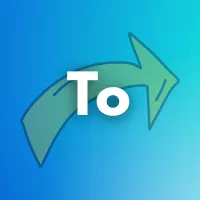Key Difference: Most people use the words To and For interchangeably. Because they think that these two words have similar meanings. But truly, they are not. The word “To” is used to connect the sentences (why do you want to meet her), and we can use it depending on the purpose. Whereas, For is used to mention the purpose of something, benefits, period of time, schedule, or opinion. Let’s see the contradictions of these terms in the upcoming sections.
To: She wants to dance with me.
For: How much money did you pay for it?
 |  |
To:

Refers to approach something.
The term “to” is a versatile proposition, it can be used for various purposes according to the situation. You can use this word to indicate the direction. Instead of using the words toward or until, we can use “to.” Because it also represents the same thing. For example, she went to the party, Here is the address that you need to know, why did you do that to him?. These are the sample sentences with the word “to” and they are literally used in different contexts. Let me give you another example to make it clear for you. There are ten to twelve people around the park.
How Do We Spell the Word To?
Phonetics pronunciation of the word To is tə,tʊ,tuː. And this word sounds like the following audio.
Enunciation
Syllabification refers to the process of division of words into smaller parts. It is commonly known as syllables. With its help, you can easily read and spell the word accurately. Here, you will see how to split the word “To” by syllables.
- The word “To” has only one syllable.
- It cannot be divided.
Using “To” in sentences:
- We are going to the theater now.
- I am looking forward to see you soon.
- Wait for a second, I will get some food to eat.
- Do you still want to participate in this competition?
- You have to tell me the truth.
For:

It indicates the purpose of something.
Usually, we use the word “For” for indicating the purpose of something. In other words, we can also use this term when we want to describe benefits, period of time, task, or motive. Let’s see an example to make it clear for you. Fruits are good for health. From this statement, we might understand that fruits are excellent for our health. Here, we come up with another example. Can you do that for me? From this example, we might understand that some request someone to do some work.
How Do We Spell the Word For?
Phonetics pronunciation of the word For is fɔːr. And this word sounds like the following audio.
Enunciation:
Syllables are phonological building blocks of words. It divides the words into parts that can help you read words more accurately. Let’s see how to split the word affect using syllables. Learning syllables can also help you to spell words correctly.
- The word “For” has only one syllable.
- It cannot be divided.
Using “For” in sentences:
- There is a present that came for you.
- You are doing this for what purpose?
- I bought something for you.
- She waited at the bus stop for five hours.
- Thank you for helping me.
Compare: To Vs For
This table will show you the contradiction between the words To and For.
| To | For | |
|---|---|---|
| Definition | Refers to approach something. | It indicates the purpose of something. |
| Synonyms | towards, into, for, until, with | as, because, being, considering |
| Antonyms | after, following | against, contra |
| Parts of Speech | Preposition | Preposition |
| Etymology | Old English tō (adverb and preposition), of West Germanic origin; related to Dutch toe and German zu. | From Middle English for, from Old English for (“for, because of”), from Proto-Germanic *furi (“for”), from Proto-Indo-European *preh₂-. |
| Examples | How to draw the dragon? She wants to go to New York. To be honest, I don’t like this food. He traveled to the US last year. Ron warned me to not go there lonely. | This method works for us. He stared at her for a moment. I have to wait for her. My mother bought things for the entire family. Are you looking for Lilly? |
Resources and References:
Resources: Cambridge Dictionary (To, For), Merriam-Webster (To, For), Collins Dictionary (To, For), Dictionary.com (To, For)
Reference: Dictionary.Cambridge.org[1], Merriam-Webster.com[2], CollinsDictionary.com[3], Dictionary.com[4].
